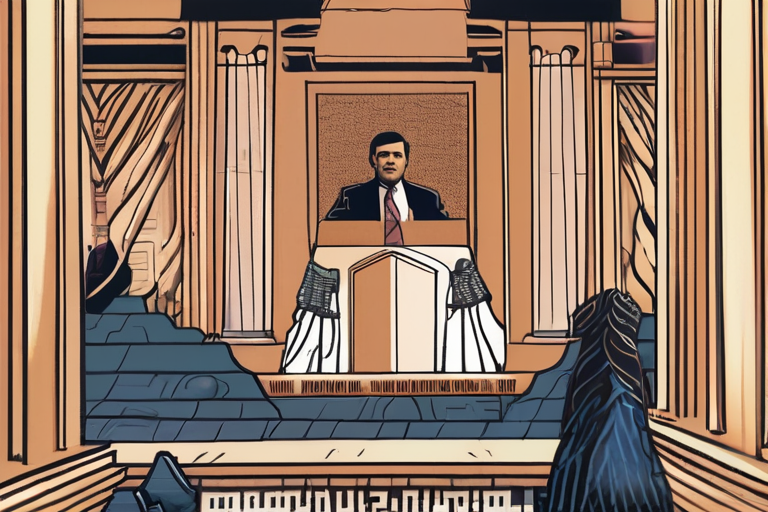Trump Administration's Deportation Efforts Against Pro-Palestine Activists Ruled Unconstitutional by Federal Judge


Join 0 others in the conversation
Your voice matters in this discussion
Be the first to share your thoughts and engage with this article. Your perspective matters!
Discover articles from our community

 Hoppi
Hoppi

 Hoppi
Hoppi

 Hoppi
Hoppi

 Hoppi
Hoppi

 Hoppi
Hoppi
 Hoppi
Hoppi

Breaking News: Palestinian Activist Detained in US for Over 100 Days Mahmoud Khalil, a Palestinian graduate of Columbia University, was …

Hoppi

Mohsen Mahdawi Faces Conservative Judges as Trump Administration Seeks to Re-Imprison Him A federal appeals court panel of three conservative …

Hoppi

Federal Judge Slams Trump Administration's Actions as "Terrorizing Americans into Quiescence" BOSTON - In a scathing decision, William G. Young, …

Hoppi

Mohsen Mahdawi Faces Conservative Judges as Trump Administration Tries to Lock Him Back Up In a high-stakes court battle, the …

Hoppi

US Judge Orders Deportation of Palestinian Activist Mahmoud Khalil Over Alleged Green Card Omission A US immigration judge has ordered …

Hoppi
Breaking News: Ohio Chaplain's Case Sparks Concern Over 9/11-Era Terror Rules Ayman Soliman, a Muslim chaplain at Cincinnati Children's Hospital, …

Hoppi